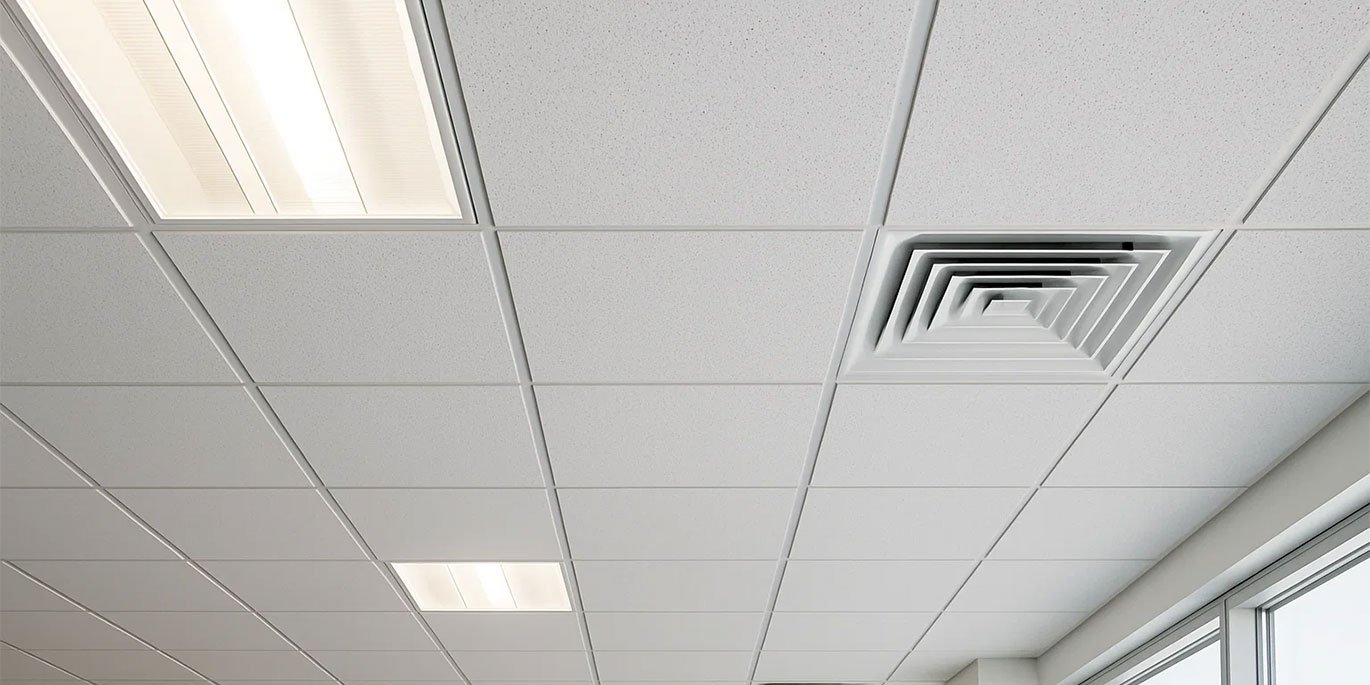Ceilings are often called the “fifth wall” of a building, and their design has a tremendous impact on the overall look and feel of an interior. While walls and floors often get the most attention, ceilings play a crucial role in enhancing aesthetics, improving acoustics, and concealing utilities. Among all ceiling solutions, ceiling tiles stand out for their versatility, easy installation, and wide range of designs.
Choosing the right ceiling tile manufacturer ensures not just beautiful interiors but also long-lasting performance. In this blog, we will explore everything about ceiling tiles—their types, applications, manufacturing process, advantages, and how to select the best manufacturer for your project.
What Are Ceiling Tiles?
Ceiling tiles (also known as ceiling panels) are lightweight, modular units installed in a grid system to form a secondary ceiling below the main structural ceiling. They are commonly used in offices, hospitals, schools, shopping malls, airports, and even modern homes.
Ceiling tiles are made from different materials such as gypsum, mineral fiber, metal, wood, or PVC. Each type offers unique features in terms of durability, sound absorption, and design flexibility.
Evolution of Ceiling Tiles
- Early Use: Traditionally, ceilings were decorated with wooden carvings and plaster moldings.
- Mid-20th Century: Mineral fiber and gypsum tiles became popular due to affordability and acoustic benefits.
- Modern Era: With advancements in manufacturing, ceiling tiles now come in moisture-resistant, fire-retardant, and eco-friendly varieties, with metal and PVC becoming widely used in commercial spaces.
Advantages of Ceiling Tiles
1. Aesthetic Appeal
Manufacturers provide tiles in countless textures, finishes, and colors. From plain white to designer 3D patterns, ceiling tiles can match any décor style.
2. Acoustic Performance
Special acoustic ceiling tiles absorb sound, reduce echo, and improve speech clarity—ideal for offices, classrooms, and auditoriums.
3. Easy Installation & Replacement
Tiles are lightweight and installed in suspended grids, making them easy to replace individually without disturbing the entire ceiling.
4. Durability
High-quality ceiling tiles resist sagging, cracking, and fading, ensuring long-term performance.
5. Moisture & Fire Resistance
Manufacturers offer tiles that resist humidity and fire, making them safe for kitchens, hospitals, and high-traffic areas.
6. Cost-Effective Solution
Compared to decorative plaster ceilings, ceiling tiles offer a more affordable option with equal or better aesthetics.
Types of Ceiling Tiles
- 1. Gypsum Ceiling Tiles – Lightweight, cost-effective, and widely used in offices and homes.
- 2. Mineral Fiber Tiles – Known for superior acoustic and thermal insulation.
- 3. Metal Ceiling Tiles – Aluminum or steel tiles, durable and modern, often used in airports and malls.
- 4. PVC Ceiling Tiles – Affordable, moisture-resistant, and available in multiple designs.
- 5. Wooden Ceiling Tiles – Elegant and natural look, mostly for premium residential or hospitality projects.
- 6. Acoustic Ceiling Tiles – Designed with perforation and sound-absorbing material for noise control.
- 7. 3D Decorative Tiles – Modern designs with embossed or patterned surfaces for luxury interiors.
Applications of Ceiling Tiles
- Corporate Offices: Professional look with soundproofing benefits.
- Hospitals & Laboratories: Hygienic, easy-to-clean, and moisture-resistant ceilings.
- Educational Institutions: Durable and acoustic tiles for classrooms and auditoriums.
- Airports & Metro Stations: Fire-resistant and stylish ceiling panels for heavy-traffic spaces.
- Retail Stores & Malls: Attractive designs to enhance customer experience.
- Residential Homes: Gypsum, PVC, or wooden tiles for living rooms and bedrooms.
Manufacturing Process of Ceiling Tiles
- 1. Material Selection: Gypsum, mineral fiber, aluminum, or PVC is chosen based on tile type.
- 2. Mixing & Molding: Raw materials are processed and shaped into panels or tiles.
- 3. Surface Treatment: Coating, lamination, or powder painting is applied for finish and durability.
- 4. Acoustic Enhancement: Perforation and acoustic backings are added for sound absorption.
- 5. Quality Testing: Tiles are tested for fire resistance, moisture resistance, and strength.
- 6. Packaging & Supply: Finished tiles are packed and shipped to distributors and project sites.
Why Choosing the Right Ceiling Tile Manufacturer Matters
- Quality Standards: Trusted manufacturers use ISO-certified materials and advanced technology.
- Design Variety: Leading brands provide hundreds of patterns, colors, and textures.
- Customization: Reputed suppliers offer tailor-made ceiling solutions for unique projects.
- After-Sales Support: Includes warranty, replacement, and technical assistance.
- Sustainability: Eco-friendly manufacturers use recyclable materials and low-emission processes.
How to Select the Best Ceiling Tile Manufacturer
- 1. Experience and Reputation - Choose a manufacturer with decades of proven work.
- 2. Range of Products - Ensure they offer gypsum, mineral fiber, PVC, and metal options.
- 3. Certifications - ISO, CE, or fire-resistance certifications indicate quality assurance.
- 4. Project Portfolio - Check if they have supplied to airports, hospitals, or major corporate projects.
- 5. Customer Reviews - Client testimonials can reveal product durability and service quality.
- 6. Price vs. Value: Focus on long-term durability instead of just low cost.
Future of Ceiling Tiles in India and Globally
The global ceiling tile market is growing rapidly due to urbanization, commercial construction, and interior design innovations. India, with its expanding infrastructure and IT hubs, is seeing rising demand for ceiling tile manufacturers. Future trends include:
- Smart Ceiling Tiles: Integrated with lighting and HVAC systems.
- Eco-Friendly Tiles: Made from recyclable and biodegradable materials.
- Designer Tiles: 3D printing and laser-cut patterns for customized interiors.
- Acoustic Innovations: Advanced sound-absorbing tiles for co-working spaces and auditoriums.
Conclusion
A ceiling tile manufacturer is more than just a supplier—they are partners in creating modern, functional, and stylish interiors. Whether you need gypsum tiles for homes, acoustic tiles for schools, or metal tiles for airports, the right manufacturer ensures top-quality products, professional installation, and long-lasting performance.
As architecture evolves, ceiling tiles will continue to play a critical role in transforming spaces with a blend of strength, beauty, and innovation. Choosing the right manufacturer is the first step to building interiors that look stunning and perform exceptionally.


